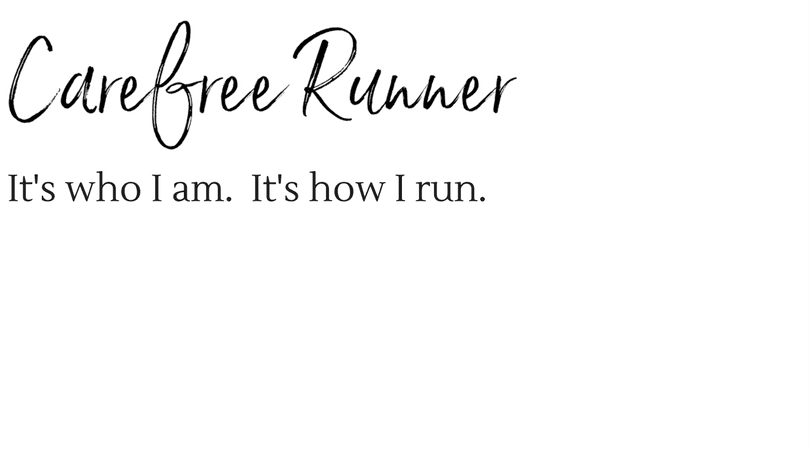
When You’re Not In The Mood
Imagine if we only did things when we felt like it. Pretty cool, huh? Think of life where you only did what you wanted, if you wanted and when you wanted to do it. If you're not in the mood, skip it. No consequences.
What a shame (or a blessing?) that it isn't so simple.
If you're reading this looking for advice on how to avoid those off days, you're in for a disappointment. What I have learned is that understanding why I do things and why I don't, helps me stay focused and disciplined.
There's Always a Good Reason Not To Do It
Speaking for myself here, I would be all over the place with unfinished projects and wouldn't get much done at all. Let's not even talk about ever getting anything completed! I really didn't feel like getting up this morning. I didn't mind going for a run.
Actually, I really look forward to my daily runs. I just didn't feel like getting out of bed, which in itself poses a slight obstacle to anything else I'd like to accomplish today.
It's easy to do the things we have to do. Even those tasks and responsibilities we don't necessarily love. A decision was made somewhere and there's a commitment attached. Like going to work so you don't end up starving on the street. We do these things, even if it's not our preference in the moment. Like preparing meals, doing laundry or walking the dog, for example. I mean, you can just huff and sigh about it and let a few people know “I'm so not in the mood for this crap today.”
I'm not in the mood to pay the utility bill today. There are consequences and having no air conditioning in September – or any month, for that matter – in Florida is not ideal.
The Problem With Excuses
It's much easier to excuse yourself from doing things that won't ruin your existence because there's a way out. And sometimes that opt-out excuse is that you're not in the mood. If you're stuck for excuses, try letting a few people know that you really don't feel like going out for a run today. This works especially well with people who don't share your love of running (not today though, because remember, today you don't feel like it). Just sigh and tell them you would rather do anything else and they will provide you with reasons why you need the rest, run too much or ‘deserve a day off.'
People, well meaning and with the best intentions, will often ‘support' you by telling you what they think you want to hear, not what you need to hear. And we all know when to seek those people out to support our excuses.
Excuses are simply reasons that alleviate our guilt and get us off the hook from our nagging conscience. The truth is we all know when we have a justified reason to do or not do something. Equally, we know, consciously or not, when we are looking for the nearest exit.
Once-off excuses probably won't hurt you. We all use them here and there. The trouble is that the more you use them, the more you're likely to use them again. And again.
Breaking Your Routine Can Undermine Good Habits
I am so guilty of this recently.
After my Ultra in Alaska I had determined earlier this year that I would take a two week break from running. It was planned with a purpose. On the back of 6 marathons this year, two of which were ultras, experience has taught me that it's better to control the break by placing it strategically. Also, even if my body is fine, my mind starts getting fatigued from the constant routine of training without some ‘free running' and/or time off.
So far so good.
The first week was executed perfectly. It worked because three days after I got back from Anchorage I was away again until the following week.
Then Hurricane Dorian stole the show and dominated the news. It seemed silly to start training and then stop a few days later and start again. This was outside of my control and I kept busy with other things.
Well, Dorian left us alone and the coast was clear for running to resume. I got up every morning to run and it took another week of false starts to actually get going. This time it was totally on me. Yet I couldn't understand why I wasn't getting my act together in the mornings, in spite of getting up early.
If you look at my daily posts on Instagram, you'll see plenty of consistent photos of me after my run. If you read the text, you don't have to go very far between posts to see that it's not all plain sailing. My weeks are peppered with inconveniences and interference to my well intended plans. It happens without fail, just like it does to you. That's not called a bad week. It's called life and the challenge is learning to deal with these nuisance things.
Often the nuisance things are not external, but fresh out of my own mindset.
It Was Like Starting All Over
It made no sense to me at first. I really wanted to go run and every day. For a whole week, I would go back to bed and then spend the day disappointed that I missed out.
Then I saw it. It wasn't lack of motivation. I struggled with the follow through because I changed my routine. I have a routine that's worked for me for years and after my break, I switched things up a little.
You see, I used to get up, get myself dressed and ready for my run, and then go call our daughter, who has the most incredible ability to sleep right through multiple alarms, blaring all around her.
After my time off, I started going through and waking her first and then going back to the bedroom to get myself dressed. There was a hitch though. My runs now are not quite as long as they were in the peak of training so I don't have to leave the house as early. That meant I could go back to bed for an extra 20 minutes and then get up. The only problem was … I fell asleep and didn't wake up for over an hour and then it was too late to go run. Every single day!
I broke the trusted routine that kept me on track without having to make that one extra decision every morning.
Revisiting What Works and Understanding Why
There's a good reason I had a simple routine in place. It was my anti-excuse insurance.
Every evening I would set out everything I needed to get myself out the door and also any recovery and maintenance things for after the run. One way to make sure you don't forget something or feel like it's too much hassle is to have it right there before you are in a place to make those decisions. So effectively, I make my decision the night before that I will run the next morning. And I plan accordingly.
All my running clothes go into the bathroom because that's the first place I stop when I get out of bed. This means that as soon as I get up, I get dressed in my running clothes and I'm ready to go. Not awake, but ready to go and fortunately, still a little too sleepy to realize that this is probably a crazy hobby. I really cash in on the fact that my brain is not fully awake in the morning by making my decisions before I go to bed.
Only after I'm dressed and ready would I go and harass the teenager to get up. Because I've been up and moving around for 10 to 15 minutes, I don't have that same half-asleep inclination to go back to bed.
This whole preparation ritual was born out of targeting my excuse hot spots and removing them before I am faced with the decision. This way I'm up, dressed and ready to go before I can even consider that I'm not in the mood.
Find the routine that works for you and helps you set yourself up for success. It's quite scary how quickly a four year long routine fell apart. That was a wake-up call for me and I don't want to hit snooze on the realization.
Within a Day, Everything Was Back On Track
As soon as I realized what a silly reason was causing all the chaos, I addressed it.
Isn't it crazy how such a simple, seemingly insignificant and practical adjustment can completely derail something that works?
Last week I went back to my usual routine. Immediately everything went back to normal. Well, except the first few runs that felt way harder than I prefer. That's courtesy of an extended break!
Now I get up 5 minutes earlier than I did before and stick to the plan that works for me. I still have that extra time to play with. For now. So I allocated it to doing something constructive. Instead of going back to bed, I plan out my day, take care of messages and emails and anything else that won't disturb the rest of the household. The extra half hour is peaceful and undisturbed. It's fair to say that I get more done in that time than I would if I did it later in the day.
That lovely additional time I have will gradually diminish as my runs build up when I start increasing my mileage again. For now though, rather than sleep it away and let it pull me away from what I want to do, I use it to maximize the use of my time. It also helps me get to bed earlier, which makes getting up early less painful.
Turn the problem into the solution.
Make the Decision Once and Commit To It Daily
You make the decision to do something once. If, as with most things, there's a process, you have to re-commit to it every day. Not make the decision again; but commit to it.
Deciding something is generally much less painful than the daily follow through of continuous commitment. When I sign up for a race I'm always excited about it in the moment. Paying my fees and going through the registration process is the exciting part. It's not that hard.
A week later when my legs feel like lead on an easy eight mile run and my mind flits ahead to the big race looming ahead, it's not as exciting. It doesn't feel as good. And often, all kinds of doubts start creeping in, including serious questions about my presence of mind.
Yet the bottom line is that when I sign up, I have made the decision. For the following weeks or months, up until then, is the hard part: the daily commitment. It's those days when I'm really just not in the mood for a training run or haul my butt out of bed at o' dark thirty that I have to remind myself of my commitment. I have to remember not what I'm doing, but why I'm doing it.
Daily Practice Promotes Discipline
Now imagine this. What if all the things you want to do because you chose them of your own free will got the same kind of priority status as the “essentials”?
There are many aspects of running that have helped me learn and grow in areas well beyond building physical fitness and endurance. Trust me, there are many days when I would much prefer to stay in bed for another few hours! And almost as many runs that don't feel particularly awesome at the time. Sometimes there's a valid reason. Many times I'm just not in the mood.
Here's the bottom line. I committed to pursue my running several years ago. So the decision I make to get up at 4:30 am six days a week is not because I feel like it in the moment. I made the decision in 2015. Enforcing that decision takes daily practice.
You know the drill with repetition to form a habit to build a lifestyle. It really is true. And it's worth the effort. The more you practice, the stronger your discipline. Eventually what you do just becomes part of what you do. It's an aspect of your life and you control it. The effort level feels lower and the success rate in maintaining it rises.
Next time you are not in the mood to do what you planned, revisit the original decision you made. Ask yourself why. That's your incentive and your motivation. You had it all along. You just have to make sure you don't let your “Why” get buried.
Remember: Be awesome today. It's your Job!



